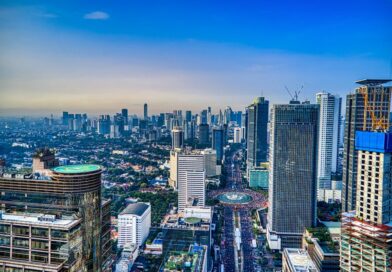Practical Considerations for Retiring in Morocco
Morocco has emerged as an increasingly popular destination for retirees seeking an affordable cost of living, a rich cultural tapestry, and a warm climate.
Practical Considerations for Retiring in Morocco
- Visa and Residency Requirements
- Long-Term Visas: Retiring in Morocco typically requires obtaining a long-term residency permit. The process can be straightforward for many retirees, provided they meet the legal requirements, which often include proof of sufficient income, health insurance, and a clean criminal record.
- Renewals and Bureaucracy: It is important to note that navigating local bureaucracy may prove challenging. Many retirees find it beneficial to hire a local consultant or legal advisor who specializes in expat affairs.
- Healthcare
Morocco offers both public and private healthcare systems. Major cities feature modern medical facilities and well-trained professionals, while rural areas may have limited access to specialized care. As a result, many retirees opt for private health insurance to secure high-quality medical services, with some even choosing to travel to Europe for more complex treatments.
- Language and Integration
- Language: Arabic (Darija) and Berber are the official languages, while French is widely spoken in business and government sectors. Although English is increasingly common in tourist areas and among younger Moroccans, learning some French or Arabic can greatly enhance everyday life and facilitate integration.
- Cultural Adaptation: Embracing local customs and traditions is crucial. Retirees are encouraged to engage with the community, join expat groups, and participate in language classes to ease the transition and foster a sense of belonging.
- Housing and Living Arrangements
- Renting vs. Buying: Housing options range from modern apartments in urban centers to traditional riads—houses with interior gardens—in historic medinas. Many retirees choose to rent initially to explore various areas before committing to a property purchase.
- Location Considerations: Popular retirement spots include Marrakech for its vibrant culture, Rabat for its governmental stability, and coastal cities like Agadir for their relaxed beach lifestyles. Each location offers a distinct experience, making it important for potential retirees to visit and thoroughly research their options.
- Financial Considerations and Taxes
- Budgeting: Although the lower cost of living can enable a retiree’s income to stretch further, it remains essential to account for expenses such as health insurance, potential travel for specialized care, and other unforeseen costs.
- Taxes: Understanding one’s tax obligations is critical. Morocco has tax treaties with several countries, affecting the taxation of pensions and other income. Retirees are advised to consult with a tax advisor knowledgeable about both Moroccan and their home country’s tax laws.
Pros and Cons of Retiring in Morocco
Pros:
- Affordability: Lower living costs can result in a more comfortable retirement on a modest budget.
- Cultural Enrichment: A wealth of historical sites, vibrant markets, and unique culinary experiences await.
- Mild Climate: Many regions of Morocco enjoy year-round sunshine.
- Expanding Expat Community: Opportunities exist to connect with like-minded individuals and share experiences.
Cons:
- Bureaucracy: The process of obtaining visas and residency permits may be complex.
- Healthcare Variability: While high-quality care is available in major cities, rural areas might lack specialized services.
- Language Barriers: Mastery of French or Arabic is important for full integration.
- Infrastructure Differences: Although modern in many urban centers, some regions may not offer the same level of convenience found in Western countries.
Articles and Information
Practical Considerations for Retiring in Morocco
Morocco has emerged as an increasingly popular destination for retirees...
Read MoreRetiring in Indonesia: Best Places for a Relaxed and Affordable Lifestyle
Bali – The Island Paradise Bali is Indonesia’s most famous...
Read MoreRelocating to the Middle East: A Land of Opportunity and Hard Work
The Middle East has long been a destination for ambitious...
Read MoreCould Watching Polo Be Your Next Great Day Out?
Could Watching Polo Be Your Next Great Day Out? Polo:...
Read More




